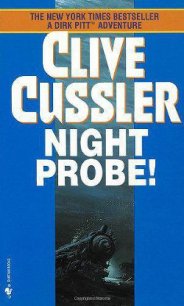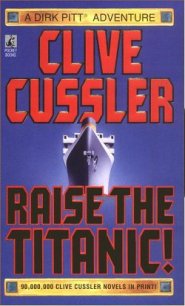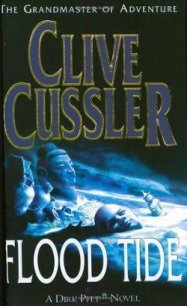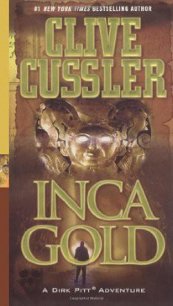Dragon - Cussler Clive (книги хорошем качестве бесплатно без регистрации .TXT) 📗
The firing abruptly ceased as he broke clear of the tunnel and raced through a stream of cars entering the underground city from the other, incoming road. Hanamura paid as much attention to the view in his rearview mirror as he did to the road and traffic ahead. He didn’t doubt for a second that Suma’s security people were alerting the police to set up roadblocks. Throwing the Murmoto into four-wheel-drive, he cut off the pavement and shot down a dirt road muddied by a pouring rainstorm. Only after bumping through a forested area for ten kilometers did he become aware of a burning pain in his shoulder and a sticky flow of fluid down his left side. He pulled to a stop under a large pine tree and examined his left shoulder and arm.
He’d been struck three times. One bullet through the biceps, one that cut a groove in his collarbone, and another through the fleshy part of his shoulder. They were not killing injuries, but if not cared for they could become extremely serious. It was the heavy loss of blood that worried Hanamura. Already he felt the early stages of light-headedness. He tore off his shirt and made a couple of crude bandages, stemming the blood flow as best he could.
The shock and the pain were slowly replaced with numbness and the haze that was seeping into his mind. The embassy was a hundred and sixty kilometers away in the heart of Tokyo. He’d never make it through the multitude of busy streets without being stopped by a policeman, curious about the bullet-riddled truck, or by Suma’s network of armed forces, who would block every major road leading into the city. Briefly he considered making for the safety of the MAIT team’s inn, but Asakusa was on the northeast of Tokyo, opposite Edo City on the west.
He looked up through the shattered windshield at the rainy sky. The low clouds would hinder an air hunt by helicopter. That was a help. Relying on the rugged Murmoto’s four-wheel traction, Hanamura decided to drive cross-country and travel the back roads before abandoning the pickup and hopefully stealing a car.
Hanamura drove on through the rain, detouring around streams and rice paddies, always headed toward the lights of the city, glowing dimly against the overcast sky. The closer he came to the metropolitan mainstream, the more densely populated it became. The open country ended almost immediately, and the small back roads soon widened into busy highways and expressways.
The Murmoto was faltering too. The radiator was damaged from the collision with the barrier, and steam hissed from under the hood in growing wisps of white. He glanced at the instrument panel. The heat gauge needle was quivering into the red. It was time to find another car.
Then he blacked out from the loss of blood and slumped across the wheel.
The Murmoto drifted off the road and sideswiped several parked cars before crashing through the thin wooden wall of a house. The jolt brought him back to consciousness, and he stared dazedly around a small courtyard the Murmoto had demolished. He was thankful the inhabitants of the house were away and he’d missed any furnished rooms.
The one headlight still threw a beam, illuminating a gate in back of the courtyard. Hanamura stumbled through it into an alley behind the house as the shouting of startled neighbors erupted behind him. Ten minutes later, after staggering across a small park, he dropped in exhaustion and hid in a muddy ditch.
He lay there listening to the sirens screaming toward his wrecked pickup truck. Once, after he felt strong enough, he began to move deeper into one of Tokyo’s secluded neighborhoods, but a security vehicle drove slowly up and down the road beaming searchlights into the park and surrounding narrow streets. It was then he lost consciousness again.
When the wet cold woke him, he fully realized he was too weak to steal a car and go on. Slowly, stiffly, and clenching his teeth against the pain that returned in agonizing waves, he swayed across the road and approached the man working on the engine of his truck.
“Can you please help me?” Hanamura begged feebly.
The man turned around and stared dumbly at the injured stranger weaving before him. “You’re hurt,” he said. “You’re bleeding.”
“I was in an accident up the street and need help.”
The man put his arm around Hanamura’s waist. “Let me get you in the house, my wife can aid you while I call an ambulance.”
Hanamura shook him off. “Never mind that, I’ll be all right.”
“Then you should go directly to a hospital,” the man said sincerely. “I will drive you.”
“No, please,” Hanamura evaded. “But I’d be most grateful if you will deliver a packet for me to the American embassy. It’s quite urgent. I’m a courier and was on my way from Edo City when my car skidded and ran off the road.”
The owner of the delivery truck stood uncomprehending as Hanamura scribbled something in English on the back flap of the envelope and handed it to him. “You want me to take this to the American embassy instead of taking you to the hospital?”
“Yes, I must return to the scene of my accident. The police will see to an ambulance.”
None of it made any sense to the delivery truck driver, but he accepted the request without argument. “Who do I ask for at the embassy?”
“A Mr. Showalter.” Hanamura reached in his pocket and pulled out his wallet and handed the driver a large wad of yen notes. “For any inconvenience. Do you know where to go?”
The driver’s face lit up at his unexpected windfall. “Yes, the embassy is near the junction of number three and four expressways.”
“How soon can you leave?”
“I have just finished rebuilding the truck’s distributor. I can leave in a few minutes.”
“Good.” Hanamura bowed. “Thank you very much. Tell Mr. Showalter that he is to double what I paid you upon receiving the envelope.” Then Hanamura turned and walked shakily into the rain and the black of the night.
He could have ridden with the truck driver to the embassy, but he dared not risk passing out or even dying. In either event the driver might have panicked and driven to the nearest hospital or hailed a policeman. Then the precious drawings would have probably been confiscated and returned to Suma’s headquarters. Better that he trust in luck and the delivery truck driver’s honor while he led the manhunt in another direction.
Hanamura, on little more than guts and willpower, hiked nearly a kilometer before an armored vehicle rolled out of the darkness inside the park, swung onto the street, and sped after him. Too exhausted to run, he sank to his knees beside a parked car and groped in his coat for a dispatch pill. His fingers had just closed around the poison capsule when the armored car with military markings and red lights flashing stopped with its headlights painting Hanamura’s shadow on the wall of a warehouse a few meters beyond.
A silhouetted figure stepped from the car and approached. Incongruously, he was wearing an odd-looking leather overcoat cut like a kimono and carrying a samurai katana sword whose polished blade glinted under lights. When he stepped around so his face was visible from the headlight beams, he looked down at Hanamura and spoke in a smug voice.
“Well, well, the famous art sleuth, Ashikaga Enshu. I hardly recognized you without your wig and false beard.”
Hanamura looked up into the rattlesnake face of Moro Kamatori. “Well, well, he echoed. “If it isn’t Hideki Suma’s waterboy.”
“Water boy’?”
“Stooge, you know, ass kisser, brown nose.”
Kamatori’s face went livid and his gleaming teeth bared in anger. “What did you find in Edo?” he demanded.
Hanamura didn’t give Kamatori the benefit of an answer. He was breathing quickly, his lips in a hard grin. Suddenly he popped the dispatch pill in his mouth and bit down on it with his molars to eject the fluid. The poison was instantly absorbed in the gum line through the tissue. In thirty seconds his heart would freeze and he’d be dead.




